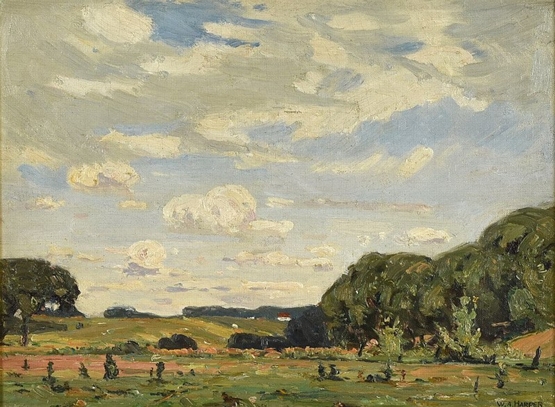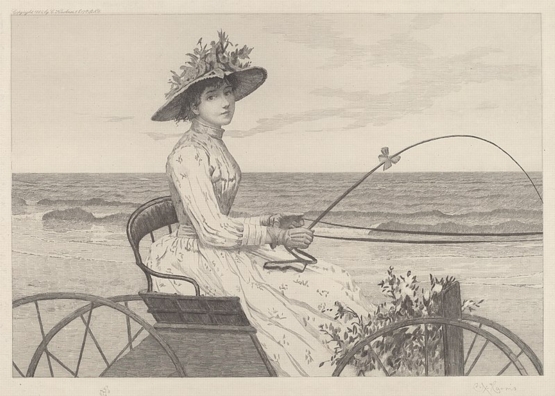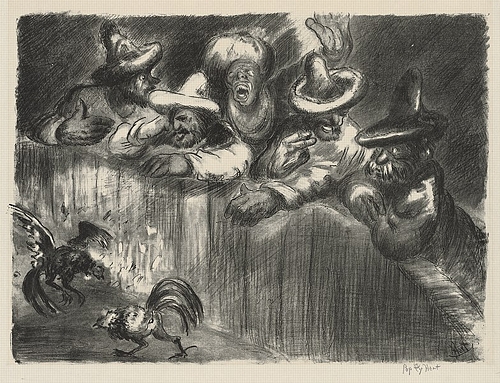
Online Audio - Contractual arrangements

(above: William A. Harper, Landscape (Brittany), 1903-1905, oil on canvas board, 11.5 x 15.5 inches, Columbus Museum, Columbus, Georgia. Public domain, via Wikimedia Commons*)

(above: Charles Xavier Harris, Untitled (Woman in a Carriage), 1890, etching print, 248 x 34 mm sheet: 398 x 59 mm plate: 277 x 369 mm. National Gallery of Art, Reba and Dave Williams Collection, Gift of Reba and Dave Williams. Public domain, via Wikimedia Commons)
Contracts between lecturers and museums should carefully take intellectual property rights into account and contemplate derivative uses of lectures. [1]
On December 8, 2004 Brett Littman, Deputy Director, P.S.1 Contemporary Art Center shared with TFAO the model form license agreement created by P.S.I for use with artists, so that museums may reference it for creating their own releases for lectures and other audio projects. Besides broadcasting archived audio from outside sources, WPS1 engineers produce original programming. On occasion they may initiate contact with museums to record museums' lectures. WPS1 is willing to share with museums copies of the waiver form WPS1 developed to obtain permissions from copyright holders.
Note:
1. Lecturers who are professors at universities should confirm that off-campus lectures on their part -- and derivative uses of them -- do not "cross the line" with regards to conflict-of-interest covenants. Harvard Law School's dispute with Professor Arthur Miller over conflict-of-interest rules relating to his activities with Concord University provides a classic example of problems that happen when agreements do not contemplate the emergence of new methods (in this case the Internet) of knowledge distribution. Professor Robert Jenson of Trinity University wrote a contemporaneous article titled "Arthur Miller: Is He At Harvard or Concord Law Schools" on this subject, followed up by an article "Continuing Topic - Courses for Hire?" in JURIST: The Legal Education Network, directed by Professor Bernard J. Hibbitts of the University of Pittsburgh School of Law. Carol A. Twigg, Executive Director of the Center for Academic Transformation at the Rensselaer Polytechnic Institute, wrote in 2000 "Who Owns Online Courses and Course Materials? Intellectual Property Policies for a New Learning Environment," sponsored by a grant from the Pew Charitable Trusts. Her paper discusses broad issues relevant to academics and institutions prompted by development of the Internet.

(above: George Overbury "Pop" Hart, The Jury, 1927, lithograph, Cleveland Museum of Art, Gift of Mrs. Malcolm L. McBride. Public domain, via Wikimedia Commons*)
Go back to Online Educational Programming for Institutions
rev. 8/22/05
Links to sources of information outside of our web site are provided only as referrals for your further consideration. Please use due diligence in judging the quality of information contained in these and all other web sites. Information from linked sources may be inaccurate or out of date. TFAO neither recommends or endorses these referenced organizations. Although TFAO includes links to other web sites, it takes no responsibility for the content or information contained on those other sites, nor exerts any editorial or other control over them. For more information on evaluating web pages see TFAO's General Resources section in Online Resources for Collectors and Students of Art History.
*Tag for expired US copyright of object image:

 Search Resource Library
Search Resource Library
Copyright 2022 Traditional Fine Arts Organization, Inc., an Arizona nonprofit corporation. All rights reserved.